Digestive Wellness
Where Health Takes Root
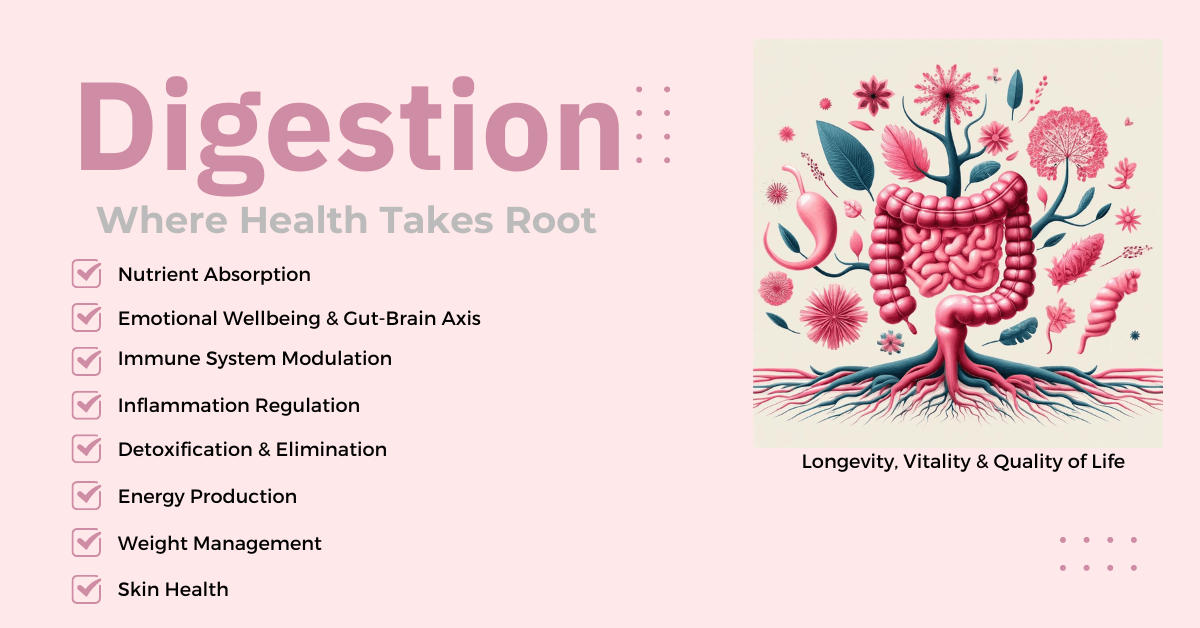
Welcome to our journey into the fascinating realm of digestive health—explore the intricate workings of the body's "second brain" and uncover the profound impact of digestion on overall well-being. In this course, we'll delve deep into the roots of vitality, discovering how the health of our gut influences every aspect of our health and vitality.
Throughout the ages, wisdom from ancient medical systems like Ayurveda and Traditional Chinese Medicine has emphasized the pivotal role of digestion in maintaining health. These traditions recognize that the gut is where health truly takes root, prescribing tailored diets and herbal remedies to optimize digestion and elimination.
Despite the ancient wisdom, conventional medicine often overlooks the significance of digestive health, focusing more on symptomatic relief than addressing underlying imbalances. However, the emerging field of functional nutrition offers a revolutionary approach, delving into the root causes of health issues and emphasizing the importance of digestive health in promoting overall wellness.
It's worth noting that traditional medical education often provides only a cursory understanding of nutrition, despite its profound impact on health. Yet, a basic understanding of biochemistry reveals the crucial role that nutrients play in maintaining optimal bodily function. Furthermore, many modern pharmaceuticals have their roots in herbal preparations, highlighting the deep connection between traditional wisdom and modern medicine.
Healthy digestion isn't just about avoiding digestive discomfort; it's the key to unlocking vibrant health and vitality. Even if we don't experience overt digestive symptoms, the path to resolving many health issues begins with what we put into our mouths and how our bodies process those nutrients. Digestion truly is the cornerstone of wellness, influencing everything from immune function to mental health, implicated in every single system of the body.
Healthy Digestion
share an anecdote about this category and why it's so compelling

The Signs of a Healthy Gut: Indicators of Optimal Digestive and Overall Health
The health of your gut is intrinsically linked to numerous aspects of your overall well-being, including your immune system, weight management, mental health, and even your response to stress. Recognizing the signs of a healthy gut can help you understand the importance of maintaining a balanced gut microbiome and how it affects your daily life. Here are some key indicators that your gut health is on the right track:
1. Regular Bowel Movements
One of the most apparent signs of a healthy gut is the regularity and quality of bowel movements. A healthy digestive system will typically result in bowel movements that are consistent, easy to pass, and occur one to three times per day. The stool should be well-formed, not too hard or loose, and free from undigested food particles. Regular, normal bowel movements indicate that your digestive system is effectively processing the food you eat and efficiently eliminating waste.
2. Consistent Energy Levels
Another sign of a healthy gut is having steady energy levels throughout the day. If your gut is healthy, it's effectively breaking down food and absorbing nutrients, which helps maintain good energy levels. Fluctuations in energy—feeling spikes after meals followed by crashes—may indicate blood sugar imbalances or poor nutrient absorption, often tied to gut health.
3. Mental Clarity
The gut-brain axis is a well-documented link between the digestive system and brain function. A healthy gut contributes to better cognitive functions such as concentration, memory, and decision-making. If you find that you have a clear mind and can focus easily without frequent feelings of mental fog, it's a good sign that your gut health is in good shape.
4. Ability to Maintain a Healthy Weight
A balanced gut microbiome helps to regulate your metabolism and can assist in maintaining a healthy weight. An optimal balance of gut bacteria aids in digesting food and absorbing nutrients, which can help control hunger and reduce cravings for unhealthy foods. Conversely, an imbalanced gut flora is linked to weight gain and difficulty losing weight.
5. Healthy Reactions to Stress and Food
How your body responds to stress and food can also be a telltale sign of gut health:
- Stress Response: A healthy gut can better manage the physiological impacts of stress. When your gut is healthy, your body is better equipped to cope with stress, leading to a more balanced mood and less anxiety.
- Food Tolerance: If you can eat a variety of foods without discomfort, it's a strong indicator that your gut is healthy. Frequent gas, bloating, or indigestion after eating may suggest food intolerances or an imbalance in gut bacteria.
Understanding the signs of a healthy gut is crucial in recognizing the broad impacts of gut health on your overall well-being. Regular bowel movements, consistent energy, mental clarity, an ability to maintain a healthy weight, and healthy reactions to stress and food are all indicators that your digestive system is functioning well. By nurturing your gut health through a balanced diet rich in fiber, probiotics, and regular physical activity, you can support these positive health outcomes and improve your quality of life.
Nutrition for healthy digestion
Where vibrant health blooms
Nutrition for Healthy Digestion
Maintaining a healthy digestive system is pivotal for overall health and well-being. Proper nutrition plays a critical role in promoting efficient digestion and preventing common gastrointestinal issues. Here’s a summary of essential nutritional principles and foods that support digestive health:
Fiber-Rich Diet
Fiber helps regulate bowel movements and prevent constipation. It also aids in maintaining a healthy gut microbiome. Integrate a variety of fruits, vegetables, whole grains, legumes, nuts, and seeds into your diet to ensure an adequate intake of both soluble and insoluble fiber.
Adequate Hydration
Water helps dissolve nutrients and soluble fiber, making them easier to absorb. It also softens stool, facilitating easier bowel movements. Aim to drink at least 8-10 glasses of water a day, or more if you are active or live in a hot climate.
Probiotics
Probiotics introduce beneficial bacteria into the gut microbiome, enhancing digestion and immune function. Incorporate fermented foods like yogurt, kefir, sauerkraut, kimchi, and kombucha, which are natural sources of probiotics.
Prebiotics
Prebiotics serve as food for the beneficial bacteria in the gut, helping to foster a healthy bacterial balance. Eat foods rich in prebiotic fibers such as garlic, onions, leeks, asparagus, bananas, and oats.
Lean Proteins
Protein is essential for repairing and building tissues, including those in the digestive tract, but heavy fats in rich meats can strain digestion. Opt for lean sources of protein like chicken, turkey, fish, and plant-based proteins such as lentils and chickpeas.
Limit Irritants
Certain substances can irritate the digestive system or exacerbate existing issues. Reduce intake of caffeine, alcohol, overly spicy foods, and high-fat foods, which can trigger acid reflux and indigestion.
Balanced Meals
Eating balanced meals helps regulate digestive processes and ensures a steady and manageable workload for the digestive system. Each meal should ideally contain a good mix of carbohydrates, protein, and healthy fats to optimize digestion and nutrient absorption.
Mindful Eating
How you eat can affect how well you digest your food. Eat slowly, chew thoroughly, and avoid eating under stress to improve your digestive efficiency and overall meal experience.
Adopting these nutritional principles can significantly enhance digestive health. A diet rich in fiber, adequate hydration, and balanced intake of macro and micronutrients, along with mindful eating practices, creates an optimal environment for digestive health. By making these strategic dietary choices, you can maintain a robust digestive system, which is a cornerstone of overall health and vitality.


Attitude
Cultivating the Right Attitude for Optimal Digestive Health
Attitude plays a critical role in overall well-being, influencing everything from our stress levels to how we digest food. A positive and mindful approach to eating and living can significantly enhance digestive health, supporting the efficient processing of nutrients and fostering a healthy gut environment. Here’s how mindfulness and a constructive mindset can contribute to improved digestion and overall health.
Embracing Mindfulness in Eating
Mindfulness in eating is about being fully present and engaged with the eating experience. It involves paying attention to the taste, texture, and aroma of food, as well as recognizing your body’s hunger and fullness cues. This practice can transform eating from a routine task into a nourishing experience
- Reduces Overeating: By eating mindfully, you are more likely to notice when you are full, reducing the chances of overeating, which can strain the digestive system.
- Enhances Digestion: Slowing down and chewing thoroughly aids in the breakdown of food and facilitates better absorption of nutrients.
- Lowers Stress: Mindful eating can be a form of meditation, helping to reduce stress which is often linked to digestive problems such as IBS (Irritable Bowel Syndrome).
Developing a Positive Mindset
A positive mindset can influence bodily functions on a biochemical level, impacting digestive health and the immune system. Optimism and positivity can help manage stress and reduce the occurrence of stress-related digestive issues.
- Gratitude Practices: Keeping a gratitude journal or regularly acknowledging things you are thankful for can improve your outlook and decrease stress.
- Cognitive Reframing: Changing the way you perceive stressful situations can reduce their impact on your digestive health. Viewing challenges as opportunities for growth, rather than threats, can lessen the stress response.
Regularly Practicing Relaxation Techniques: Incorporating relaxation techniques into your daily routine can help maintain a calm and positive mindset, which is beneficial for digestion.
- Deep Breathing Exercises: Simple breathing techniques can help activate the body’s relaxation response, improving digestion and alleviating stress.
- Progressive Muscle Relaxation: This involves tensing and then relaxing different muscle groups, which can help distract from stress and promote a peaceful mind and body.
Setting Realistic Expectations
Having realistic expectations about health and diet is crucial. Obsessing over perfect diets or ideal health can lead to stress and disappointment, which are counterproductive for digestive health.
Having realistic expectations about health and diet is crucial. Obsessing over perfect diets or ideal health can lead to stress and disappointment, which are counterproductive for digestive health.
- Flexibility in Dieting: Allow yourself the flexibility to enjoy a variety of foods without guilt. Rigidity can lead to stress, which may disrupt digestive processes.
- Balanced Approach to Health: Focus on balance rather than perfection in your dietary habits and health routines.
Adopting a mindful approach and maintaining a positive attitude are key components of digestive health. These practices not only help in reducing stress but also enhance the body's ability to digest and absorb nutrients more effectively. By fostering mindfulness and a positive mindset, you can improve not only your digestive health but also your overall quality of life.
Exercise
Mindful Movement for Digestive Health: Enhancing Gut Function through Gentle Exercise
Incorporating mindful movement into your routine can have a significant positive impact on digestive health. Mindful movement refers to exercises that are performed with awareness, focusing on the connection between the body and mind. These practices not only improve physical health but also reduce stress, which can greatly benefit digestive processes. Here's a closer look at how integrating mindful movement into your daily life can enhance your digestive system's function.
Understanding Mindful Movement
Mindful movement involves engaging in physical activity while maintaining a conscious awareness of the body's motions and sensations. This approach emphasizes the quality of movement over quantity, encouraging a deeper connection with one's physical state and promoting relaxation and well-being.
Benefits of Mindful Movement for Digestive Health
- Stress Reduction: Chronic stress can negatively affect the entire digestive system, leading to issues like indigestion, inflammation, and irritable bowel syndrome (IBS). Mindful exercises help activate the body’s relaxation response, reducing stress and its adverse effects on gut health.
- Enhanced Blood Flow: Gentle, regular movement helps increase blood flow to the digestive organs, which can improve the efficiency of digestive processes and aid in the quicker elimination of waste.
- Strengthening Core Muscles: Many mindful movement practices strengthen the core muscles, which support the digestive organs. Stronger core muscles can help enhance the functionality of these organs, promoting more effective digestion and bowel regularity.
- Improving Gut Motility: Exercise can help increase the contractions of the digestive tract, which are necessary for moving food through the digestive system.
Types of Mindful Movement for Digestive Health
- Yoga: Yoga combines physical poses with deep breathing and meditation, making it an ideal practice for fostering mindfulness and supporting digestive health. Specific poses, like twists and forward folds, can stimulate the digestive organs and aid in the movement of food and waste through the system.
- Tai Chi: This gentle martial art focuses on slow, graceful movements and is highly effective in reducing stress and improving overall body awareness.
- Pilates: Known for its focus on core strength, Pilates involves precise movements and breath control, which can help strengthen the muscles around the digestive organs.
- Walking: A simple yet powerful form of exercise, walking can be performed mindfully by paying attention to the rhythm of your steps and breathing. It is especially beneficial after meals to help aid digestion.
Tips for Integrating Mindful Movement
- Consistency is Key: Incorporate small sessions of mindful movement into your daily routine. Even a few minutes each day can make a significant difference.
- Post-Meal Movement: Light walking or gentle yoga after meals can be particularly effective in aiding digestion.
- Listen to Your Body: Choose forms of exercise that feel good to you and don’t cause discomfort. Mindful movement should be rejuvenating, not depleting.
Mindful movement is a valuable tool for improving digestive health. By reducing stress, enhancing circulation, and strengthening core muscles, practices like yoga, Tai Chi, Pilates, and even mindful walking can significantly impact your digestive efficiency and overall well-being. Incorporating these exercises into your lifestyle can lead to a healthier digestive system and a more balanced state of mind.


Lifestyle
Embrace Gut-healthy living
While diet, exercise, and a positive attitude are foundational to overall well-being, other lifestyle factors significantly influence digestive health. These elements can either support a smoothly functioning digestive system or contribute to discomfort and digestive disorders. Here’s an exploration of crucial lifestyle choices that impact digestive health:
Adequate Hydration: Adequate hydration is essential for digestive health. Water helps break down food so that your body can absorb the nutrients. It also softens stool, which helps prevent constipation. Aim to drink at least 6-8, eight-ounce glasses of water each day and adjust based on activity level and climate.
2. Stress Management - Chronic Stress can severely impact digestive health, leading to increased acid reflux, indigestion, and disruption of gut bacteria. Managing stress effectively is therefore crucial for maintaining a healthy digestive system. Incorporate stress reduction strategies such as meditation, deep breathing exercises, yoga or journaling into your daily routine.
3. Sleep Quality: Good sleep is crucial for digestive health. Disruptions in sleep patterns can lead to hormonal imbalances that may increase appetite and cravings, leading to overeating and digestive strain. Aim for 7-9 hours of quality sleep per night and try to keep a consistent sleep schedule.
4. Mindful Eating Practices: How you eat affects how well you digest your food. Eating too quickly or while distracted can lead to overeating and indigestion. Make a habit of eating slowly and without distractions like TV or smartphones. This helps in better chewing and digestion of food.
5. Proper Chewing: Chewing food thoroughly is often overlooked as a key digestive process. It breaks food down into smaller pieces and mixes it with digestive enzymes in saliva, initiating the digestion process. Chew each bite about 20-30 times until the food is liquefied, which facilitates smoother digestion and nutrient absorption.
6. Avoiding Late-Night Eating: Eating late at night can disrupt the natural process of digestion and sleep. The body is less efficient at digesting food at night due to lower activity levels. Finish eating at least 3 hours before bedtime to ensure food is digested properly and to improve sleep quality.
7. Hygiene Practices: Maintaining good hygiene can prevent the ingestion of harmful bacteria that could disrupt the digestive system. Regularly wash your hands, especially before eating or preparing food, to avoid introducing harmful pathogens into your digestive system.
8. Avoid Smoking and Limit Alcohol Consumption
Smoking can damage the lining of the digestive tract and increase the risk of various gastrointestinal diseases, while excessive alcohol consumption can lead to stomach ulcers and liver diseases. Quit smoking and limit alcohol intake to moderate levels or lower.
Incorporating these lifestyle choices can significantly enhance digestive health beyond the basic measures of diet and exercise. Each factor plays a vital role in maintaining a healthy digestive system and should be considered part of a holistic approach to health and wellness. By paying attention to these often-overlooked aspects of daily life, you can support optimal digestion and overall health
Digestive Complications
Digestive complications can disrupt your entire body's harmony, affecting everything from energy levels to mental clarity.
Digestive Complications
Why they're so Common
In recent decades, there has been a significant increase in gut-related health issues, affecting individuals of all ages. From mild bloating to severe irritable bowel syndrome, the prevalence of digestive disorders is alarmingly high. Several factors contribute to this trend:
1. **Dietary Changes**: Modern diets differ drastically from those of our ancestors just a century ago. The widespread consumption of processed foods, fast food, and convenience items has become the norm. These foods are often low in fiber, high in unhealthy fats and added sugars, and laden with artificial additives, preservatives, and pesticides. Such dietary habits disrupt the delicate balance of our digestive ecosystem.
2. **Lifestyle & Stress Factors**: Our fast-paced lifestyle exacerbates stress levels, which in turn impacts our digestive system. Chronic stress can lead to increased inflammation, altering the gut's microbial diversity and balance. This disruption can create a vicious cycle of stress and inflammation, further impairing gut health.
3. **Antibiotics**: While antibiotics have been life-saving, their overuse has significant drawbacks. Antibiotics indiscriminately kill both pathogenic and beneficial bacteria, disrupting the natural balance of the gut microbiome. This disruption can create an environment conducive to the growth of opportunistic pathogens.
4. **Environmental Factors**: Exposure to environmental toxins such as pesticides, heavy metals, and pollutants plays a substantial role in digestive health. These toxins can compromise gut barrier function, increase intestinal permeability (commonly known as leaky gut), and trigger chronic inflammation. This inflammation is not only linked to gastrointestinal issues but also to systemic diseases like heart disease and diabetes.
5. **Sedentary Lifestyle**: A lack of physical activity can negatively affect gut motility, which is essential for regular bowel movements and the elimination of toxins. A sedentary lifestyle can lead to constipation, allowing toxins to be reabsorbed into the bloodstream instead of being expelled from the body.
Addressing these factors through lifestyle changes, dietary adjustments, and mindful management of environmental exposures can significantly improve gut health and reduce the prevalence of digestive disorders.
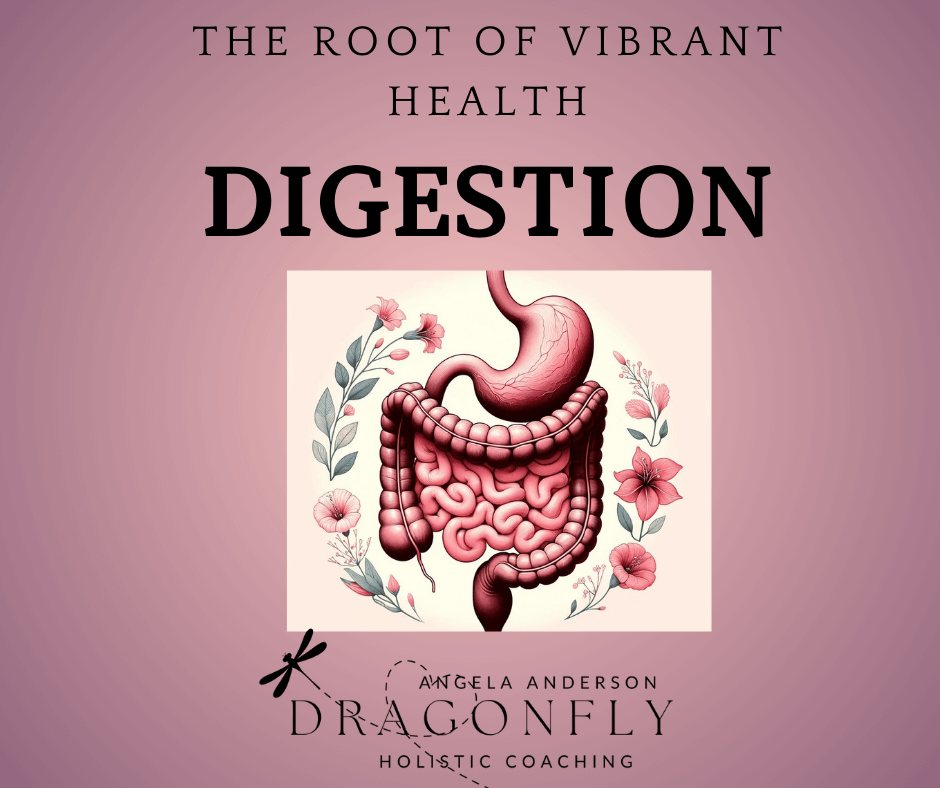
Common Digestive Complications
Candidiasis
Hemorrhoids
Dysbiosis
Leaky Gut
6R Framework for Gut Recovery
The 6R Framework for gut recovery—Remove, Replace, Reinoculate, Repair, Rebalance, and Relax—provides a comprehensive approach to restoring digestive health.
The Six R Framework is a holistic approach to digestive health that addresses underlying issues and promotes long-term wellness by focusing on six crucial steps: Remove, Replace, Re-inoculate, Repair, Rebalance, and Regulate. This systematic method is widely used in functional medicine and nutrition to help individuals restore and maintain optimal gut health, which is essential for overall well-being. Here’s a comprehensive introduction to each of the six steps:
1. Remove
The first step involves identifying and eliminating substances that negatively impact the gastrointestinal system. This includes common dietary irritants such as gluten, dairy, and processed sugars, as well as environmental toxins like pollutants and harmful chemicals found in household products. The goal is to reduce inflammation, minimize stress on the digestive system, and create a clean slate for healing.
2. Replace
Once harmful elements are removed, the next step is to replace essential ingredients that the body needs for proper digestion and absorption. This may include digestive enzymes, hydrochloric acid, and bile acids, which are crucial for breaking down food and absorbing nutrients effectively. This step ensures that the digestive system has all the necessary tools to function optimally.
3. Re-inoculate
Healthy gut flora is essential for immune function, nutrient absorption, and overall health. Re-inoculating the gut involves introducing beneficial bacteria through high-quality probiotics and providing prebiotic foods that help nourish these microbes. This step aims to restore a healthy balance to the gut microbiome, which can be disrupted by antibiotics, poor diet, and stress.
4. Repair
Chronic gut issues can damage the intestinal lining, leading to conditions like leaky gut syndrome where toxins and undigested food particles escape into the bloodstream. The repair phase focuses on healing the gut lining with nutrients that support mucosal health, such as collagen, zinc, antioxidants, and essential fatty acids. This step is crucial for preventing inflammation and autoimmunity, which can stem from an unhealthy gut.
5. Rebalance
Achieving and maintaining gut health requires more than just dietary changes; it also involves balancing lifestyle factors that affect overall health. This includes adequate sleep, regular physical activity, stress management, and healthy relationships. Rebalancing these aspects of life helps enhance the body’s natural healing capacity and supports the efficacy of the other steps in the framework.
6. Regulate
The final step of the framework involves regular monitoring and adjusting as needed to maintain gut health over the long term. This includes ongoing assessment of dietary habits, lifestyle choices, and possibly the continued use of supplements. It also involves staying responsive to changes in the body’s needs due to aging, stress, or environmental factors, ensuring sustained digestive health and overall wellness.
The Six R Framework is a comprehensive approach that addresses the complexities of gut health from multiple angles, emphasizing the interconnection between diet, lifestyle, and the body’s internal environment. By following these steps, individuals can achieve significant improvements in their digestive health, which in turn can lead to better health and quality of life.
Functional Testing for Digestion
Functional testing for digestion offers personalized insights, enabling targeted strategies for optimal gut health.
Introduction to Functional Testing for Digestion
Understanding your digestive health on a deeper level requires more than just observing symptoms; it calls for precise, personalized insights that can only be obtained through functional testing. Functional testing for digestion delves into the intricate workings of your gastrointestinal system, identifying imbalances and dysfunctions that might be impacting your overall health.
Unlike conventional testing, which often focuses on diagnosing specific diseases, functional digestive testing aims to uncover the root causes of digestive issues. By analyzing various biomarkers, such as enzyme levels, gut microbiota, and nutrient absorption, these tests provide a comprehensive picture of your digestive health. This detailed information allows for the development of targeted strategies to address specific imbalances and promote optimal gut function.
With functional testing, you gain the power to tailor your dietary and lifestyle choices to meet your unique needs, paving the way for improved digestion, enhanced nutrient absorption, and overall well-being. Join us as we explore how functional testing can be a game-changer in your journey to optimal digestive health.
Functional Testing
SIBO (Small-intestinal bacterial overgrowth) Testing
Lactulose Breath Testing
GI Spotlight

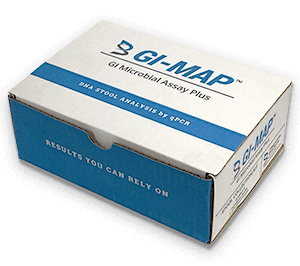
GI-MAP
(Gastrointestinal Microbial Assay Plus)
The GI-MAP (Gastrointestinal Microbial Assay Plus) is a cutting-edge, comprehensive stool test that provides a detailed analysis of your gut microbiome and overall gastrointestinal health. Utilizing advanced DNA-based technology, the GI-MAP offers precise and accurate insights into the complex ecosystem of your gut, helping to identify imbalances and potential sources of digestive dysfunction.
The MRT Leap
Mediator Release Test
The MRT LEAP (Mediator Release Test and Lifestyle, Eating, and Performance) protocol is a powerful tool designed to identify food sensitivities and optimize your diet for improved health and well-being. Unlike traditional allergy tests that detect immediate reactions, the MRT LEAP measures inflammatory responses to a wide range of foods and food chemicals, uncovering hidden sensitivities that can contribute to chronic health issues.
By pinpointing specific foods that trigger adverse reactions in your body, the MRT LEAP enables you to eliminate these culprits from your diet, reducing inflammation and alleviating symptoms such as digestive discomfort, headaches, joint pain, and fatigue. This personalized approach to dietary management helps restore balance, enhance nutrient absorption, and promote overall wellness. Join us as we explore how the MRT LEAP can transform your health by uncovering and addressing hidden food sensitivities.
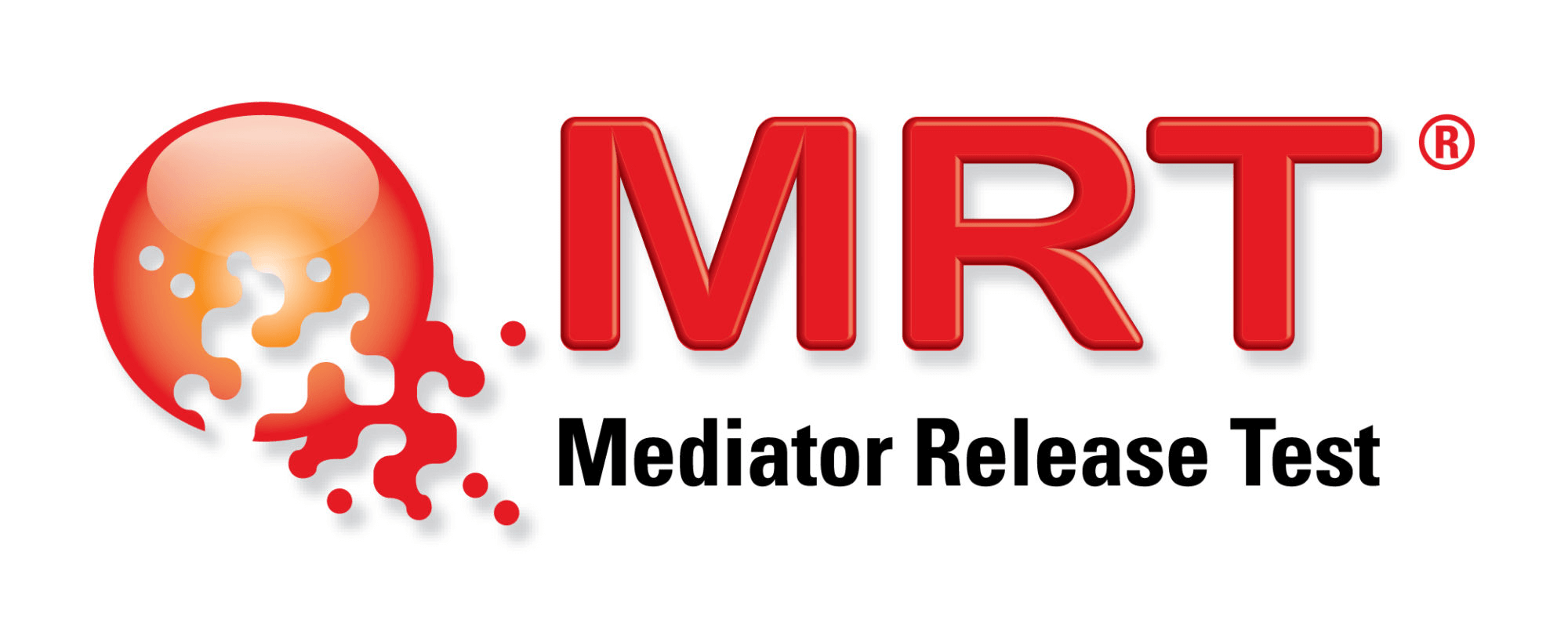
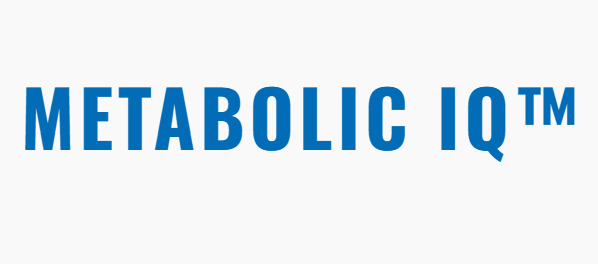
Metabolic Wellness Profile
MWP
The Metabolic Wellness Profile (MWP) is a comprehensive diagnostic tool designed to provide valuable insights into your metabolic health. By analyzing key biomarkers, the MWP helps identify imbalances and underlying issues that may affect your overall well-being. The profile includes three crucial tests: Indican, Total Bile Acids, and 8-OHdG.
These tests collectively offer a detailed picture of your digestive efficiency, liver function, and oxidative stress levels. By understanding these aspects of your metabolic health, you can take proactive steps to optimize your diet, lifestyle, and overall wellness. The MWP is an essential resource for anyone seeking to improve their metabolic function and achieve optimal health.
Mucosal Barrier Assessment
MBA
The Mucosal Barrier Assessment evaluates markers of intestinal permeability and mucosal health. It includes tests such as Zonulin, Histamine, DAO (Diamine Oxidase)

Why Dragonfly Holistic Coaching?
Personalized Care
When it comes to addressing health complications, the notion of a "one-size-fits-all" solution is not just ineffective, it's potentially counterproductive. Each individual is a unique tapestry of genetics, lifestyle choices, dietary habits, and environmental exposures, making them biochemically distinct. This means that a health approach which yields positive results for one person could prove ineffective, or even detrimental, for another. Functional wellness modalities stand out by embracing this diversity; recognizing that true healthcare must be deeply personalized. By considering an individual's entire well-being, factoring in genetics, diet, lifestyle, and environmental influences, functional wellness crafts solutions tailored to each person's unique needs. This bespoke approach ensures that each individual receives the most effective and appropriate care, underscoring the fact that in the realm of health, there really is no such thing as a universal solution. When I sign a contract with a client, I will work tirelessly by your side until we are able to identify the root cause of your health challenges and develop a sistainable way forward.
This page contains affiliate links. This means I may earn a commission should you choose to sign up for a program or make a purchase using my link.
Functional Diagnostic Nutrition® health coaches do not diagnose, treat, prevent, or cure any
disease or condition. Nothing we share with our clients is intended to substitute for the advice,
treatment or diagnosis of a qualified licensed physician. Functional Diagnostic Nutrition® (FDN)
Practitioners may not make any medical diagnoses or claim, nor substitute for your personal
physician’s care. It is the role of a Functional Diagnostic Nutrition® Practitioner to partner with
their clients to provide ongoing support and accountability in an opt-in model of self-care and
should be done under the supervision of a licensed physician.









